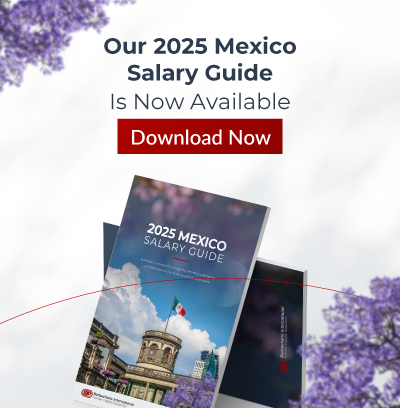
Mexico Labor Reform: How We Got Here and How to Prepare for it
New developments to Mexico’s Federal Labor Law are reshaping possibilities for collective bargaining and a new labor justice system. This much-anticipated reform is a game-changer for employers with operations in Mexico, as it’s time to adjust to the new regulations.
But first, it’s important to understand how we got here.
The new amendment was constructed in accordance with the stipulation set forth by the United States-Mexico-Canada Agreement (USMCA), which was created as a replacement to NAFTA. This requirement essentially provides that the implementation of the USMCA is contingent upon Mexico amending its Federal Labor Law in compliance with Annex 23-A. In other words, this agreement (which has not yet been sanctioned by all three countries) would refrain from entering into force until Mexico conceded a number of reformative measures.
Prior to this Amendment, Protection Agreements in Mexico tended to favor the interests of companies over the rights of workers. As a result, unions in Mexico lacked democratic processes, transparency, and accountability, thus functioning in such a way that was uncomplimentary to employees.
However, the new Amendment also aligns with some U.S. interests, diminishing the financial incentive for manufacturers to export factory jobs south of the border. The conditions that existed before USMCA inevitably encouraged U.S. companies to establish operations in Mexico, as low wages were commonplace, and there was little that Mexican workers could do about it. Under the new Federal Labor Law, workers now have the right to organize unions and negotiate pay.
So what exactly does the Amendment call for?
This legislation, enacted by Mexican President Andrés Manuel López Obrador and subsequently unanimously approved by the Mexican Senate on April 29th, seeks to give Mexican workers many of the same rights available to workers in the United States.
Some of these entitlements (as outlined in Annex 23-A of the USMCA) include:
– Protecting the rights of workers to collectively bargain, to organize, and to join unions of their choosing without fear of retaliation, coercion, discrimination, or interference by their employers.
– Establishing an impartial and independent institution for the elections of union leaders and representation, as well as for the resolution of disputes pertaining to collective bargaining agreements.
– Implementing a system of verification for these elections to ensure ballots were cast freely and secretly.
– Introducing time restraints for elections, and restricting delays justified by procedural challenges or objections.
– Ratifying existing collective bargaining agreements through the affirmative support of a majority of workers, consequently certifying the abolition of Protection Agreements that lack actual support from workers.
– Restricting unilateral changes to the collective bargaining agreements so as to ensure transparent negotiations.
So what does this mean for employers?
This is potentially the start of an entirely new labor landscape, and employers should prepare accordingly for the rise of neoteric labor relations. Independent unionization is likely to skyrocket, and the possibility of stronger unions heralds the possibility of greater demands being made. Moreover, it may signal the necessity for companies to adapt to heightened obligations in compliance with the new Federal Labor Law.
How does Barbachano International suggest moving forward?
At Barbachano International, we highly recommend that our clients with operations in Mexico thoroughly examine the Labor Amendment and ensure proper compliance with the new labor regulations and obligations. Understanding your current labor agreement, your current labor environment, and the new labor and union obligations is critical to devising an effective strategy that is compliant and makes sense moving forward. It’s important to note that this should include reviewing, updating, and revising (if necessary) your own labor agreements. Companies could benefit from seeking legal or additional professional advice. At the very least, you should continue to monitor the evolving labor landscape and prepare to adjust accordingly.
Visit our blog for more information on related matters, such as the conference we held in conjunction with our sister company Challenger, Gray & Christmas Mexico on labor law reform and the new role unions will play. For additional information on future events and conferences, please subscribe to our newsletter here.

By Fernando Ortiz-Barbachano
President and CEO of Barbachano International (BIP),
The Human Capital Solutions leader in Mexico, Latin America, and the USA, offering high-impact executive search, executive coaching, and outplacement.
About Barbachano International
Barbachano International (BIP) is the premier executive search and leadership advisory firm in the Americas (USA, Mexico, Latin America, & Canada) with a focus on diversity and multicultural target markets. Outplacement and Executive Coaching services are provided by our sister allied company Challenger Gray & Christmas. Since 1992, BIP and its affiliates have impacted the profitability of over 50% of Fortune 500 Companies. BIP has been recognized by Forbes as Americas’ Best Executive Search Firms and currently ranks #27 and #3 on the West Coast. Headquartered in San Diego, California with satellite offices in Florida and Mexico. As member-owners of NPAworldwide Recruitment Network, we are supported by partner offices in over 50 countries.



